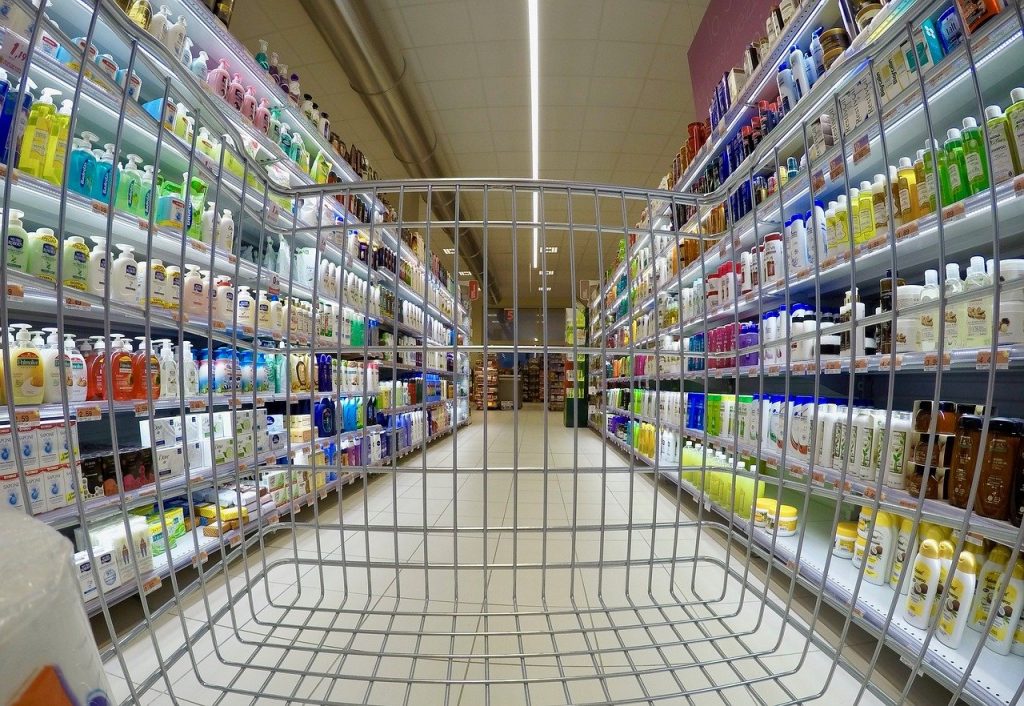Supermarkets warn shoppers not to start panic buying as the increasing number of staff self-isolating affects availability of some products.
Co-op say it is “running low on some products”, while Iceland say they are at risk of closing shops because of the rising number of retail workers in isolation. However, they urge consumers it is not necessary to panic buy.

According to Business Secretary Kwasi Kwateng, the government is “concerned about instances of shortages”. But he doesn’t want people under the impression that all the shelves are empty at every store, because that isn’t the case. He says the government are reviewing the situation by “looking at the supply chains of critical industries”.
The growing number of employees “pinged” by the NHS Covid-19 app is affecting sectors like retail, hospitality and transport. Too many people are having to self-isolate for a period of 10 days, so cannot come into work. As a result, businesses want a return to work for those who are double jabbed, or take daily tests.
The government is publishing guidance on which sectors are exempt from self-isolation, under new upcoming rules.
Empty supermarket shelves
On Thursday many newspapers published photos of empty supermarket shelves, with some commenting on panic buying of particular products. However, the industry claims there is currently no systemic issue with food shortages. Pictures of empty shelves in stores are “isolated incidents”.
Meanwhile, Co-op says it is impacted “by some patchy disruption to our deliveries and store operations”. But are working closely with suppliers to quickly re-stock.
Nearly 4% of Iceland’s employees are currently absent due to Covid, with around 1,000 members of staff affected. 27% of these have positive cases of the virus, while 64% are isolating after a “ping” from the NHS Covid app. The worst hit region is the north of England.
Co-Op is recruiting 3,000 additional staff, while Iceland plan to take on 2,000 temporary workers to help with shortages.
The rising number of workers told to isolate is “putting increasing pressure on retailers’ ability to maintain opening hours and keep shelves stocked”. In addition, falling numbers of available HGV drivers is also causing disruption to some supply chains. At the moment there is a shortage of 100,000 drivers in the UK. This is due to Covid test delays, and workers returning to Europe after Brexit.
Meanwhile, the British Meat Processor’s Association report issues, as between 5% and 10% of workforces are “pinged” by the NHS app.
Isolation rules
Current self-isolation rules in England state anybody traced as a close contact of a confirmed Covid case needs to isolate for 10 days. They must still do this even if they have received both doses of a vaccine.
An isolation order from NHS Test and Trace is a legal requirement, while a “ping” from the NHS Covid app is only advisory.
One supplier of produce to hospitals, care homes, prisons and restaurants, is asking “pinged” staff to return to work after a negative PCR test. They already have a process in place for daily lateral flow tests so people can continue working.
However, Mr Kwarteng says: “The rules are clear and I think they should be followed”.
The government announced new rules earlier this week for a “small number” of fully vaccinated critical staff. They can continue working even after close contact with somebody who tested positive for Covid. But the PM does not want to extend exemptions too widely due to fears of spreading the virus.
Isolation rules will remain mainly unchanged until 16 August. From that date, anyone that is fully vaccinated or under the age of 18 will not have to self-isolate. Daily Covid tests are required instead.
Other activities affected by levels of isolation include bin collections and fuel supply at petrol stations.
Thank you for reading Panic Buying not needed, Shoppers told

Looking for additional living space or somewhere quiet to work from home? Look no further – Log cabins at affordable prices.